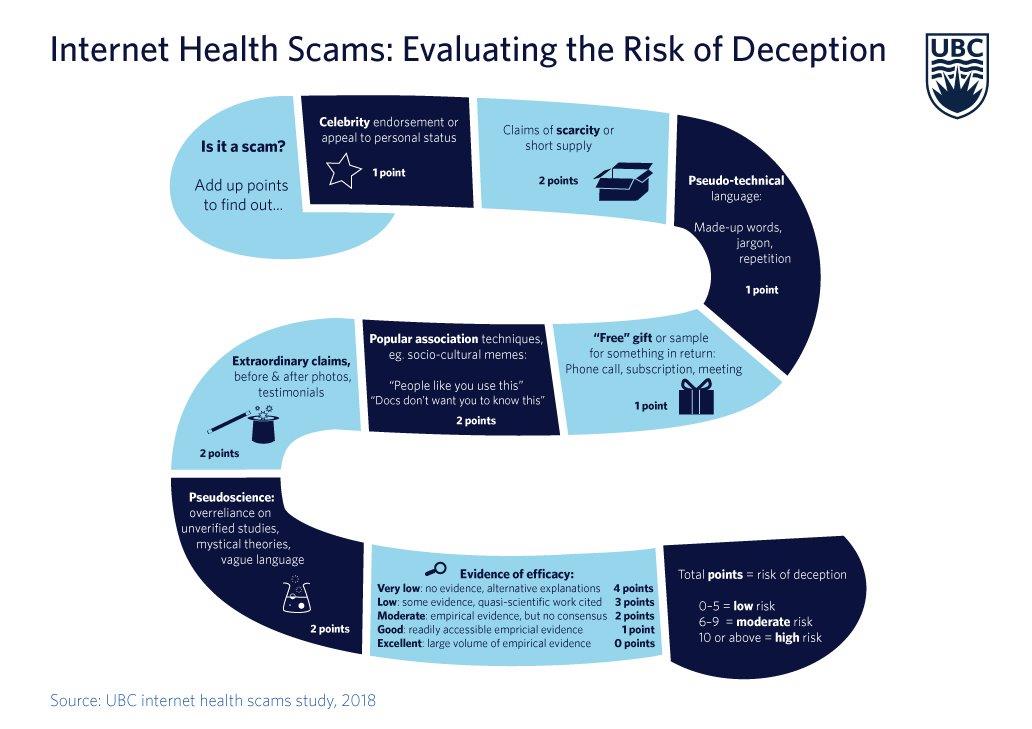We’ve all seen those pervasive health ads that pop up while browsing a newsfeed or shopping online. Some ads, known as clickbait, capture attention with sensational photos or headlines such as “Let’s eat clay!” Some declare quick fixes to treat acute and chronic conditions such as arthritis or diabetes. Still others instill fear or push conspiracy theories by claiming “doctors don’t want you to know this.” These ads may use positive or negative emotional appeal to entice some consumers to waste money on unproven remedies which lack scientific evidence, and are unlikely to provide health benefits. Additionally, use of untested approaches can lead to delays in seeking proper diagnosis and treatment, and cause serious harm or even death.
In response to online health-related scams, a team of interdisciplinary health professionals at the University of British Columbia created a simple tool to help consumers evaluate such ads for deception. The Risk of Deception Tool assigns a point value based on the number of persuading aspects in the ad, such as use of celebrity endorsement, pseudo-technical jargon, claims of product scarcity, or evidence of efficacy. A high overall point tally signifies a greater likelihood that the ad is fraudulent.
According to the study, the Risk of Deception Tool “appears to have some initial face validity in assisting in the assessment of suspect Internet health marketing.” It was developed with the intention of helping healthcare professionals “educate the public on how to assess the risk of healthcare products and services promoted through the Internet, and to improve public safety.” The Tool could also be considered for use as a classroom learning exercise for students in the health sciences, or as a health promotion activity for consumers attending health information fairs.

If you are searching for trustworthy, high quality web information, HSLS librarians can point you to strategies for evaluating the credibility of web resources. Contact us via HSLS Ask-a-Librarian for assistance.
~Rebecca Abromitis